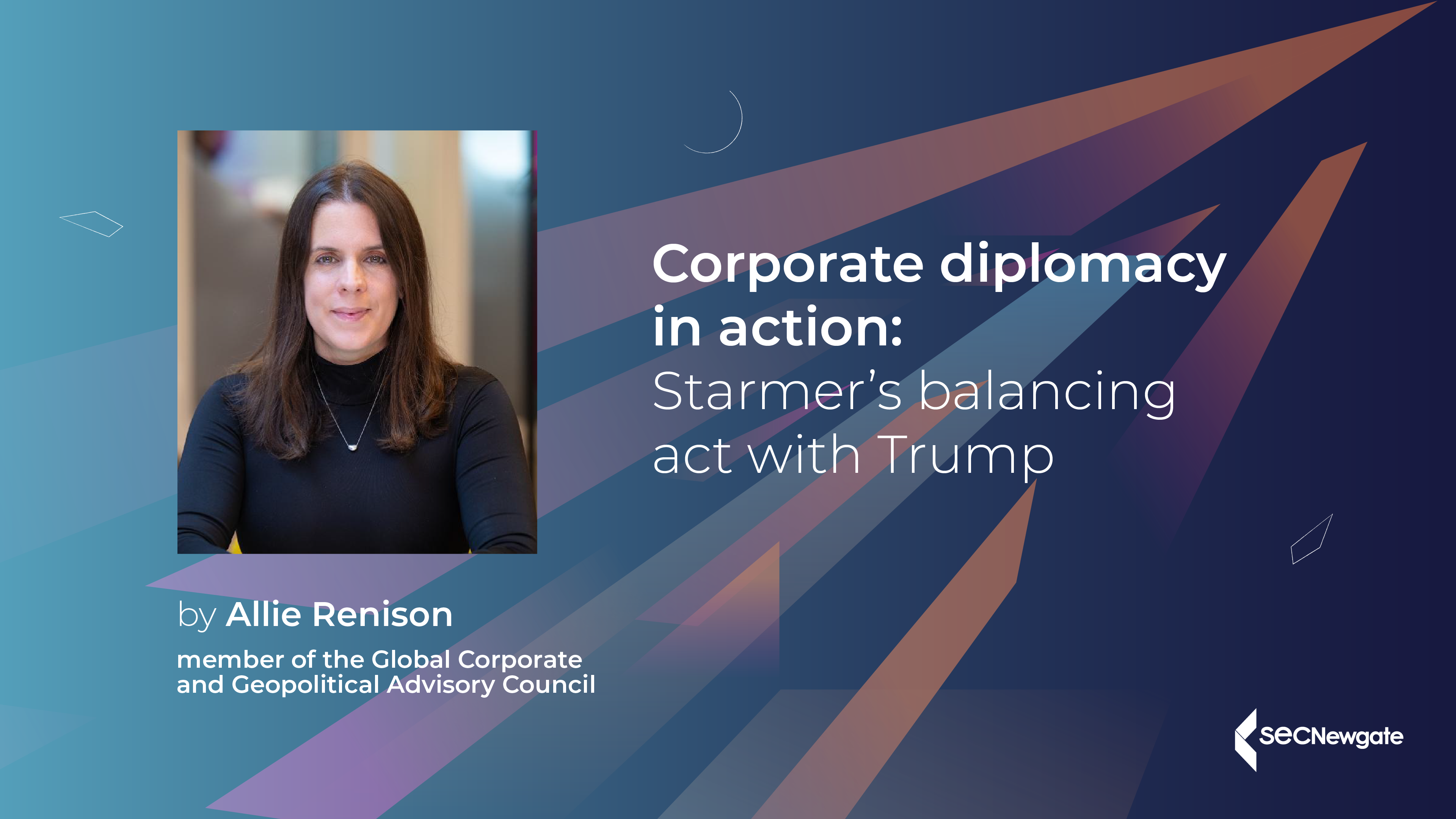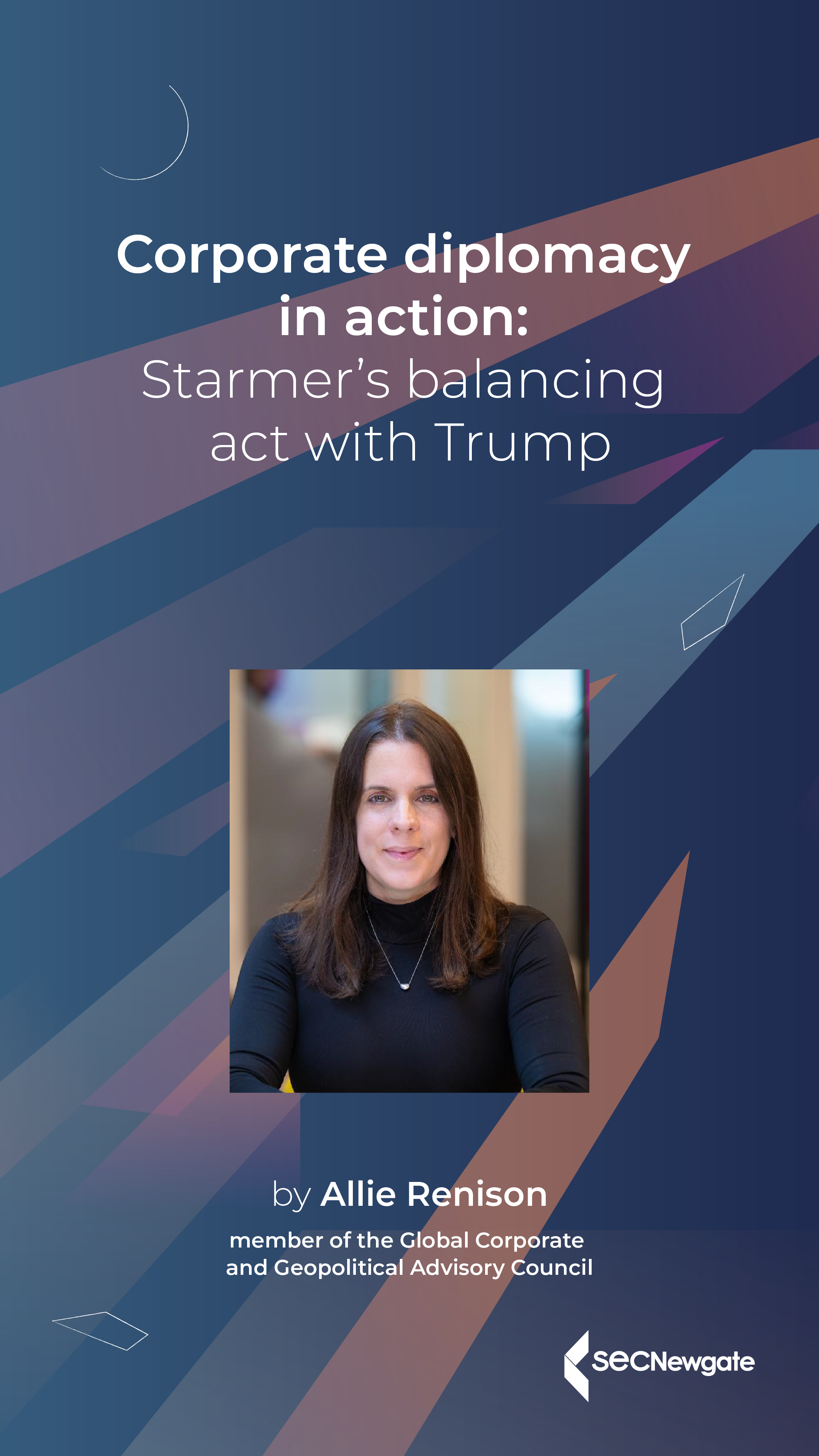About the Author
If the best version of diplomacy is silence, as the famed British Prime Minister Benjamin Disraeli once said, Sir Keir Starmer will have adjusted his settings and come away from President Trump’s unprecedented second state visit breathing a sigh of relief – for now. Success measured by the yardstick of crises averted and bilateral ties assured, with a few bells and whistle announcements rather than any major agreements.
The stakes going into the visit were high. Trump and his circle -led chiefly by his Vice President JD Vance- had hardly been restrained in offering up what they see as Britain’s free speech crisis on a platter for criticism. Paired with concerns over the state of its digital regulatory landscape, and the anticipated recognition by the UK government of Palestinian statehood, British officialdom was hoping that the President’s undeniable fondness for the UK would play its part in his restraint.
In the end, it did – and then some. The biggest risk for Starmer was not in the scripted words of Trump’s address at the royal state banquet, but his penchant for off-script antics where pomp and circumstance ended, and the political press conference ensued. And it appeared that Trump came prepared to play nice – by his standards anyways.
The president continued to frustrate the Labour leader’s critics by waxing lyrical yet again on the latter’s ‘tough negotiator’ skills in previously reaching an early trade deal that he insisted the UK was front of the queue for. The deal of course is only a provisional outline, with only marginal commitment gains relative to other US trading partners who have since struck their own framework agreements.
Perhaps most surprising, particularly given the visit’s announcement of a new MoU-grounded partnership on technology cooperation rather than any further progress on tariffs, was the relative lack of critical press conference questions on the trade front writ large. There has been ample grounds to date for the subject to be raised in the run up to the state visit.
Chief among US concerns relating to the UK has been around the latter’s Online Safety Act, albeit dreamed up and introduced by a previous Conservative government. In particular, Britain’s independent regulator Ofcom’s recent enforcement of it has drawn the ire of the Trump administration. Aimed at protecting minors from ‘harmful’ internet content, its extraterritorial reach has come into full effect as American tech firms complain of letters being sent to US websites with UK users warning of hefty fines in the absence of compliance.
This intersection between tech and trade policy has become an ever greater risk for governments and regulators the world round, as Washington ramps up its war on what it deems as unfair and discriminatory rules affecting its digital industries. Naturally, the domination of the global digital economy by US firms means they are first in line to feel the pinch of foreign tech regulation. And it’s hard to make the case that there isn’t some level of selective targeting at play.
Those firms who have long complained of what they see as expropriation now have strong ally in the Trump administration, and have been further backed by a recent letter from the Federal Trade Commission advising them not to comply with British and EU rules which could harm the privacy and data security of US consumers. A number of these companies were also in attendance alongside Trump for the state visit, complete with promises of new investment in the UK. A salutary reminder perhaps of the old adage that -certainly when brandishing bilateral ties- money talks.
Indeed, it would have had to, in the absence of progress announcements on the actual trade policy front. Questions followed on the airwaves following the end of the visit about whether pulling out all the taxpayer-funded royal stops had been worth it insofar as assessing what Britain actually got -substantively- in return.
Among the highlight reel, a restatement from Trump on why the UK had been first in line for its best-of-a-bad-bunch detail-lite “deal”, rather than any increased steps to pad it out and reduce tariffs further. No movement on Washington’s already-pledged commitment to create a quota for reduced duties on UK steel exports. Cooperation pledges on “pro-innovation” regulatory approaches artificial intelligence, bringing Britain closer into the US sphere on AI and drifting ever further away from the EU’s interventionist model.
And yet, the reality of course is that a state visit -with all the trappings of royalty- is rarely meant to move the dial on thorny policy challenges. Trade diplomacy takes the place of trade policy accordingly. And in truth, Starmer has leveraged Britain’s monarchy far enough in navigating political relations with Trump without politicising it entirely.
The invitation letter to Trump back in February was choregraphed to keep the UK positively in Trump’s sights as he mounted his tariff war. That King Charles spoke at the state banquet of support for Ukraine to a US president at best ambivalent about doing so and reinforcing the UK’s steadfastness in that area is remarkable in its own right.
And diplomacy was on show where it could have easily come undone. The president avoided a number of slam dunk opportunities during the joint press conference to malign his British counterpart on journalists’ questions relating to areas of clear blue water between the two countries. On the UK’s recognition of Palestinian state hood, he opined at length over the horrors of the Israeli massacre with just a brief final sentence about differences of opinion with the Prime Minister on the substantive question being asked. A far cry from the trade threats thrown Canada’s way previously after reports Mark Carney would be doing the same.
On questions of the now-departed US Ambassador Peter Mandelson, his hasty exit and ostensible connections to Jeffrey Epstein, Trump batted the question away. On the Labour government’s repudiation of North Sea oil and gas exploitation in the rush to Net Zero, the president chose to focus his answer largely on his own approach to “drill baby drill” rather than castigate the UK’s choices. Of course, with reports looming that Labour may soon water down its “no new licenses” position on the North Sea, one might not be surprised if Trump still takes some credit for changing Starmer’s mind.
Not in the room for any of the official visit, despite the state banquet invitation being extended to other UK opposition leaders, was Nigel Farage, whose Reform party are leading the UK polls with their crackdown pitch on immigration. But his presence loomed large as Trump volunteered his own suggestion of using the military in response to a press conference question about controlling illegal migration.
Not that Farage’s convenient omission by British officialdom was surprising. United by bombastic, larger-than-life personas and aligned politics, the easy rapport between the two men and their ability to draw adoring crowds would put have put the rigidity of the Prime Minister’s personal style and relations with Trump on even fuller display.
Team Trump still managed to bring together political heavyweights of the British right in a dinner with members of the president’s Cabinet in town for the state visit, but it was hardly a moment to unite the right. Instead, open warfare among Conservative grandees and key Reform advocates ensued.
Uniting under the banner of one figurehead seems to have worked -eventually- for the American conservative movement, but there is much to learn for its British counterparts. Businesses keen to learn how to navigate corporate diplomacy around a new right wing movement’s take-it-or-leave-it approach to their policy could also do worse than to observe lessons from across the pond.
Taking a larger step back however, the UK under a left-of-centre government has so far navigated its relationship with Trump 2.0 with deft skill -alongside strategic silence in places ahead of criticism- and been rewarded with prime place among US trading partners queuing up for deals. So was a state visit free from diplomatic strife the best that Starmer could have hoped for?
The creep of tech and other foreign policy tensions easily threatened to undo some of the progress to date, but Trump hardly wanted to distract from his red carpet roll-out and was in cheerful control from start to finish. The contrast with the direct speech lashings doled out to his UN hosts at the subsequent General Assembly in New York couldn’t be more stark.
At the very least, the British government will be pleased that any American sabre-rattling could wait until after the ceremony of Trump’s visit had passed. And at the very best, that the pomp and circumstance he enjoyed yields some continued, expanded preference on trade ties in the coming months. Watch this space.

